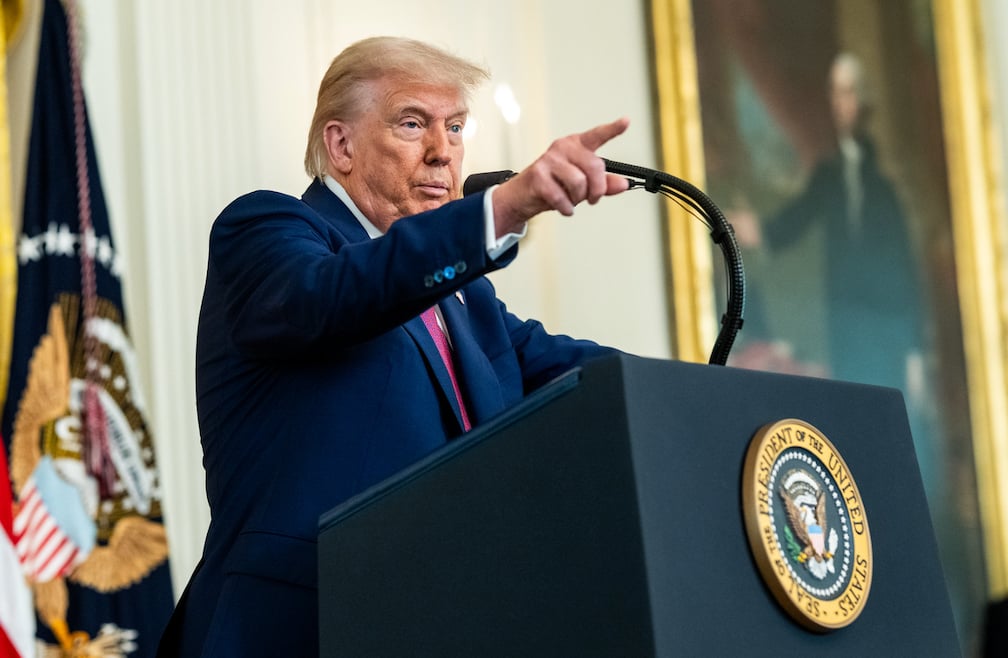
.svg)
In June, President Donald Trump issued a travel ban affecting 19 countries, blocking or limiting access to U.S. visas for millions of people worldwide.
But the rollout has created a lot of uncertainty, especially for families, students, and workers trying to understand if they’re affected. Below, we’ve answered the most common questions about who the travel ban applies to, what visa categories are impacted, and what your options might be.
This FAQ was reviewed by Boundless immigration attorneys and reflects the most current guidance as of June 2025.
General Overview
What is the 2025 U.S. travel ban?
A presidential proclamation signed June 4, 2025, that suspends entry and visa issuance for nationals of specific countries. The policy affects both immigrant and nonimmigrant visa types.
Who issued the latest travel ban?
President Trump issued the 2025 travel ban during his second term in office.
When did the new travel ban take effect?
The proclamation took effect on June 9, 2025.
Why were these specific countries included?
The U.S. government says these countries have incomplete security information-sharing practices, high visa overstay rates, or limited border control capabilities. However, the criteria are not fully transparent, and advocates have raised concerns about fairness.
What’s the difference between this travel ban and the 2017 version?
The 2025 ban includes a broader list of countries and affects more visa types. Unlike the 2017 ban, there is no formal expiration or regular review built into the policy.
Eligibility and Impact
Does the travel ban apply to people already in the U.S.?
No. The 2025 travel ban only applies to foreign nationals outside the U.S. who were not issued a visa before June 8, 2025. If you’re already in the U.S., regardless of your status, you are not affected. However, you should avoid traveling internationally if you’re from a country impacted by the ban or on the watchlist.
Is my country affected by the 2025 U.S. travel ban?
It depends. There are three categories:
- Full ban countries: All visa categories are suspended.
- Partial ban countries: Immigrant and certain nonimmigrant visas (B-1/B-2, F, M, J) are restricted.
- Watchlist countries: These may be added to the ban later this summer.
If you’re already in the U.S., you are not affected — but you should avoid international travel. If you’re a dual national, you may be able to travel using your non-banned passport.
Are U.S. green card holders from banned countries affected?
No. Lawful permanent residents (green card holders) are not affected by the ban and can continue to travel to the U.S.
Can dual nationals still travel?
Yes. If you hold a passport from a country not included in the travel ban, you may use it to travel to the U.S., even if you are also a citizen of a banned country.
Can someone from a banned country travel through a third country?
No. Traveling through another country will not bypass the travel ban. If you’re subject to the ban and do not hold a valid visa issued before June 8, 2025, you cannot enter the U.S.
{{tip-component-1}}
Visa Types Affected
What types of visas are banned?
- Full ban countries: All visa types, both immigrant and nonimmigrant, are suspended.
- Partial ban countries: Immigrant visas are suspended, and B-1/B-2 (tourist/business), F (student), M (vocational), and J (exchange) visas are not being issued.
Are B‑1/B‑2 visitor visas included?
Yes — for nationals of both full and partial ban countries.
Can students from affected countries still come to the U.S.?
No — student visas (F and M) are not being issued for nationals of banned countries unless they qualify for an exemption.
Does this affect asylum-seekers or refugees?
No. The travel ban does not apply to people applying for asylum, refugee status, withholding of removal, or protection under the Convention Against Torture.
Will this affect Special Immigrant Visa (SIV) processing?
Some SIV holders — such as Afghans who worked with the U.S. government — are exempt. However, eligibility depends on individual circumstances.
Exemptions and Waivers
Who is exempt from the 2025 travel ban?
Exemptions apply to:
- U.S. citizens
- Green card holders (lawful permanent residents)
- Dual nationals using a non-banned passport
- People with valid visas issued before June 8, 2025
- Diplomats, officials, and some international athletes
- Immediate relatives of U.S. citizens (spouses, children, parents) in some cases
- Certain humanitarian, adoption, and SIV cases
Can I apply for a waiver?
Yes, but they are hard to get. You may apply for a National Interest Exception (NIE) if your entry would serve a vital U.S. interest, and if you do not pose a security risk.
Are there medical, humanitarian, or family emergency waivers?
These scenarios may be considered, but approval is rare and requires detailed documentation.
What about athletes, diplomats, or government officials?
They may be exempt if traveling for an official or sanctioned purpose with documentation.
{{tip-component-2}}
Visa and Entry Details
Can I enter the U.S. if I already have a valid visa?
Yes, if your visa was issued before June 8, 2025 and is still valid. However, final entry is subject to inspection at the border.
What if my visa was approved but not printed before June 9?
If your visa was not formally issued before June 9, it may be canceled or delayed.
Can I transit through the U.S. if I’m from a banned country?
No. The travel ban blocks entry for individuals from affected countries regardless of transit plans.
{{newsletter-component}}
What if I already bought a plane ticket?
Airlines must comply with U.S. entry rules and may deny boarding to travelers who are subject to the ban. Contact your airline and the nearest U.S. embassy or consulate for help.
Are visas being issued for affected countries right now?
Generally no. Most U.S. embassies and consulates have paused visa processing for affected countries unless the applicant qualifies for an exemption.
Family Reunification and Emergencies
Can I bring my spouse or children to the U.S. if they’re from a banned country?
Some immediate relatives of U.S. citizens — spouses, parents, and unmarried children under 21 — may qualify for an exemption. The rules are still evolving, and more clarity is expected later this summer.
Can I switch from a K-1 visa to a CR1 marriage green card?
Yes. If you’re from a full ban country and your K-1 can’t proceed, you can choose to get married and apply for a CR1 visa. Boundless can help you evaluate this path.
Is proxy marriage an option if we can’t be in the same country?
Yes. If the marriage is legally recognized in the place where it’s performed, it is generally valid for U.S. immigration purposes, even if it’s a proxy marriage. The couple must meet in person after the marriage for it to be fully recognized by U.S. Citizenship and Immigration Services (USCIS).
For couples affected by the travel ban who can’t proceed with a K-1 fiancé visa, proxy marriage may offer a helpful alternative. Once legally married, they may apply for a CR1 (marriage green card), which is an immigrant visa and generally not blocked under the travel ban for spouses of U.S. citizens.
Couples typically have two options:
- Get married under the laws of the country where one or both partners are located
- Use a legally valid proxy marriage, such as through the U.S. state of Utah, which allows online ceremonies even if both partners are abroad
This option can also be helpful for same-sex couples who are unable to marry legally in their home country.
What if my family member has a medical emergency?
You may request a waiver for urgent humanitarian reasons. These waivers are difficult to obtain and require proof of the emergency and why travel is essential.
Countries on the Watchlist
Is my country at risk of being added to the travel ban?
Yes, 36 additional countries have been notified by the U.S. government that they may be added to the ban if certain security or data-sharing criteria are not met.
What countries are on the watchlist?
Examples include:
- Angola
- Cambodia
- Cameroon
- Democratic Republic of Congo
- Ethiopia
- Liberia
- Mali
- Mauritania
- Nigeria
- Syria
- Uganda
- Zimbabwe
This list is not final and may change.
What should I do if I’m from a watchlist country?
If you’re in the U.S., stay here and do not travel internationally. If you’re outside the U.S. and have not been issued a visa, it may be delayed or denied.
Legal and Policy Context
Is the travel ban permanent?
No. It remains in place until rescinded by a future administration or blocked by the courts.
Can the travel ban be overturned in court?
Yes. Lawsuits have already been filed. If the courts block the policy, parts of it may be paused or lifted.
Has a travel ban been challenged before?
Yes. The 2017 ban was challenged in multiple courts and eventually upheld by the Supreme Court in Trump v. Hawaii (2018).
Is the policy being applied consistently?
No. Reports show inconsistent enforcement at borders and embassies. Rules may be applied differently across locations.
Will Boundless help if I’m affected?
Boundless is monitoring the situation and can help you understand your options. While we can’t guarantee outcomes, we’re committed to providing the best possible guidance.
Full List of Affected Countries (as of June, 2025)
Full Ban Countries:
Afghanistan, Burma (Myanmar), Chad, Republic of the Congo, Equatorial Guinea, Eritrea, Haiti, Iran, Libya, Somalia, Sudan, Yemen
Partial Ban Countries
Burundi, Cuba, Laos, Sierra Leone, Togo, Turkmenistan, Venezuela
Watchlist Countries (at risk of being added):
Angola, Antigua & Barbuda, Benin, Burkina Faso, Cambodia, Cameroon, Cape Verde, DRC, Dominica, Ethiopia, Gambia, Ghana, Liberia, Mali, Mauritania, Niger, Nigeria, Senegal, Syria, Tanzania, Uganda, Zimbabwe, and others.
{{cta-component-center-aligned}}
.png)
.png)
.png)




%20(1).jpeg)


.jpg)

.svg)
.avif)